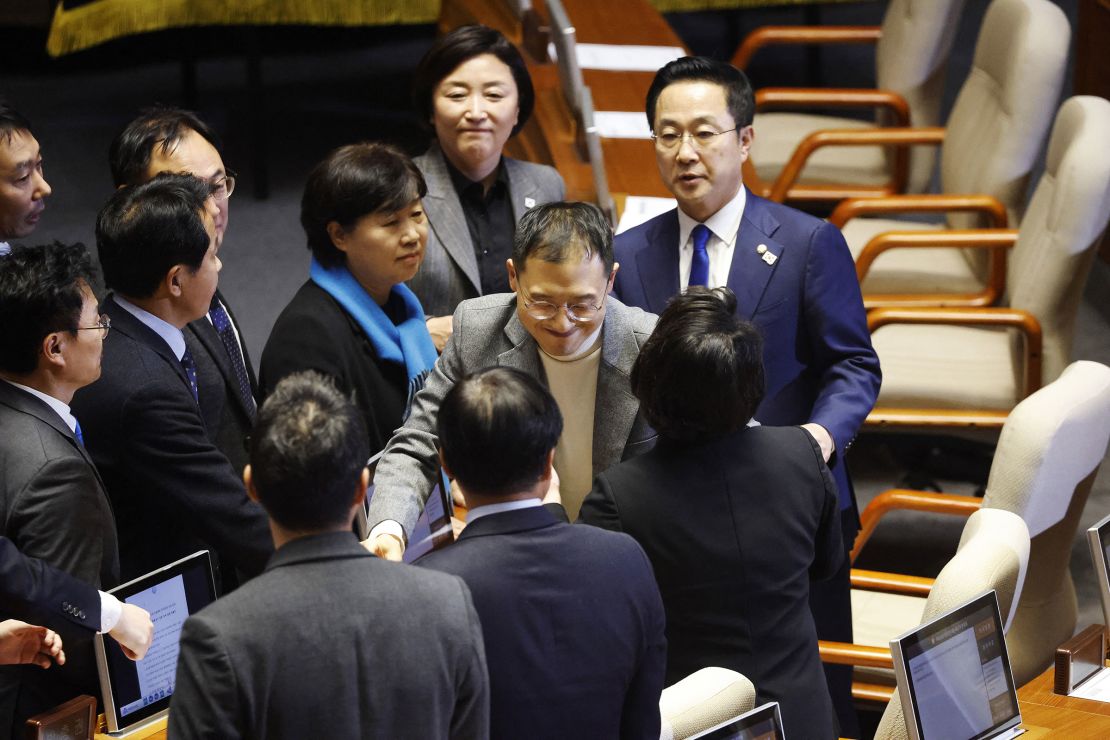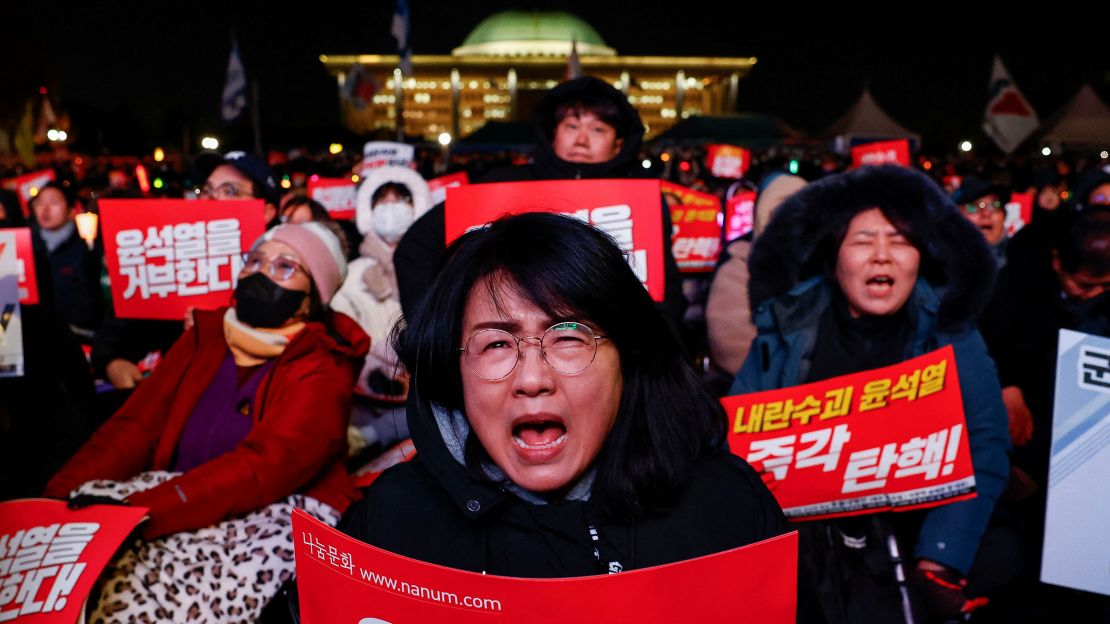CNN
—
South Korean President Yoon Suk Yeol survived an impeachment vote on Saturday over his brief declaration of martial law, but his party said it would seek his resignation.
In another day of high drama, Yoon avoided ouster from office after members of his party walked out of parliament and boycotted the vote. Only two remained inside, while the only returning ruling lawmaker voted against the motion.
Outside the main hall, opposition MPs were heard shouting: “Get in (the hall)!” and calling them “cowards” as large crowds outside the National Assembly demanded the president’s removal.
President Yoon has been under intense pressure to step down as leader following his shocking attempt to declare martial law in South Korea. The failed attempt – which would have been the first time since the law was passed in over four decades – sparked a fierce backlash.
Opposition MPs have submitted another motion for Wednesday, December 11 – the next available date for them to vote on Yoon’s impeachment.
Although the ruling People Power Party (PPP), of which the president is a member, has largely united to prevent Yoon’s impeachment, it insists that he must quit.
PPP leader Han Dong-hoon said his party would “continue to push for the president’s orderly resignation” to “minimize confusion.”
An opposition lawmaker, Kim Joon-hyung of the Rebuilding Korea Party, said it was impossible for the president to last until the end of his term.
“The sooner he resigns or is impeached, the better for our country.”


Earlier Saturday, Yoon apologized to the nation in his first public comments since his failed attempt to impose martial law plunged the country into political chaos and led to calls for his impeachment.
“This emergency declaration of martial law arose from my desperation as the ultimate responsible party for state affairs,” Yoon said in a two-minute speech.
“I am deeply sorry and sincerely apologize to the citizens who must have been very shocked,” Yoon said, acknowledging that he had “caused fear and inconvenience” to South Korean citizens.
Yoon said he “will not shirk the legal and political responsibilities related to this declaration of martial law.”
The uproar began late Tuesday evening when Yoon declared martial law in an unannounced televised address and accused the main opposition party of pro-North Korea sympathies and “anti-state activities.” He cited a proposal from the Democratic Party, which has a majority in parliament, to indict high-ranking prosecutors and reject a government budget proposal.
But within just six hours, the leader was forced to relent after lawmakers pushed past soldiers into parliament to unanimously repeal the decree.
Yoon on Saturday addressed rumors that martial law would be reimposed, saying: “There will absolutely be no second attempt at amending the constitution.”
“I will entrust my party with methods to stabilize the political situation, including for the rest of my term… I apologize to citizens for the worries I have caused,” Yoon concluded as he stepped down from the podium and bowed.
Although the declaration of a military emergency was short-lived, it caused shock and anger across the country. The country remains deeply scarred by the brutality of martial law imposed during decades of military dictatorship before winning a long, bloody battle for democracy in the 1980s.

“I tried to block them with my body”: South Korean politician on confrontation with soldiers during martial law
Pressure on Yoon has increased since then, with protesters and opposition activists calling for his impeachment – and support has wavered even within his own party and the military.
On Friday, Han said Yoon must be suspended immediately to protect the country from “great danger.”
Yoon’s apology came as new details emerged about the arrest list the president made during the riot, a significant turning point that led Han to call for Yoon’s suspension.
Shortly after martial law was declared, Yoon Hong reportedly told Jang-won, the first deputy director of National Intelligence, on the phone to take the opportunity to “arrest and clean up everything.”
Yoon said he would give the intelligence agency the authority to launch a counterintelligence investigation and “unconditionally support it with funds and personnel.”
Details were initially revealed to reporters by lawmakers who had been briefed on the call, and Hong confirmed the accuracy of the contents to CNN on Saturday.
Hong later learned of the list through the Defense Counterintelligence Command (DCC) and thought it was “crazy,” MPs said earlier, citing him.
Han was on the arrest list along with a number of politicians, including Democratic Party opposition leader Lee Jae-myung.
This story has been updated.



